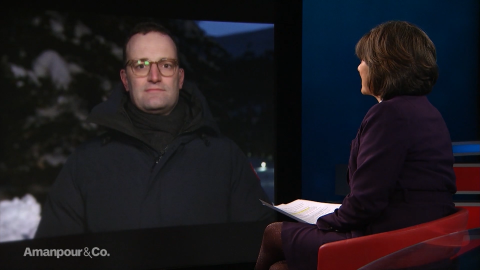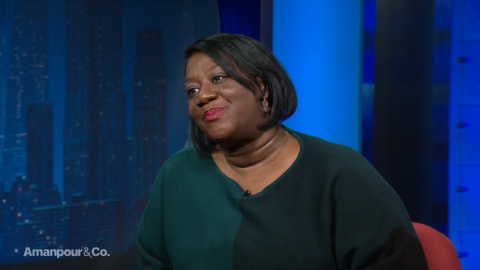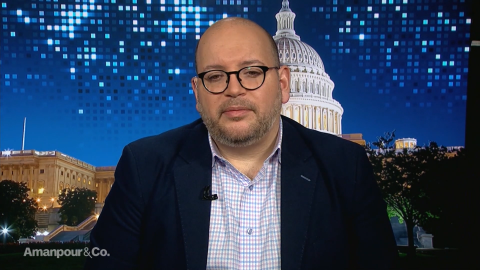Read Transcript EXPAND
CHRISTIANE AMANPOUR: How do you react to the United States looking like it favors a breakup of the European Union?
JENS SPAHN: Well, first of all, the transatlantic relationship and partnership remains very important to us, no matter, actually what is the concrete situation. But it shows, yes, we in Europe …
SPAHN: We have to become stronger. Take the defense union. If there is a crisis around us, in our own neighborhood, like in North Africa, like in the Middle East or the former Yugoslavia 20 years ago, today, we would not be able and not be capable really actually to engage on our own, to have the capacities, the forces, the resources and for that, by the way, the U.S. administration always wanted us in the past, the European Union, and for that, we need to combine our forces and really explain to our people that if we want to become more independent and to stand on our own feet, we need to invest more in our security.
AMANPOUR: Do you mean sort of like a European army?
SPAHN: Yes, but of course, I mean, European army is one of these buzz words, now we need to make it concrete, what does it mean? I think it does not mean that all national armies are just obsolete, but that we bring together forces – special forces, quick response forces for example if there is a crisis, if there is a European engagement like it is in Mali that there are European forces engaging there and not French or German or Italian forces. So you combine parts of your armies, but there is still a national army because this idea that there is no more national responsibility is again frightening some people. So you need to have – you need to have certain resources on a European level and you have to coordinate them.
AMANPOUR: But again, to go back to the unprecedented pressure you’re facing from the United States, you’ve just said that the transatlantic relationship is very important to you. But I wonder how important it is to the Trump administration. As you know, there’s been more worries that President Trump might announce some kind of pull out of NATO. The House of Representatives this week passed a measure to prevent that, to commit to keeping NATO, keeping the United States in NATO. But this is also what the Secretary of State Pompeo said about the threats to European Union and particularly involving Brexit. Listen to him.
(BEGIN VIDEO CLIP)
MIKE POMPEO, U.S. SECRETARY OF STATE: The Brexit, if nothing else, was a political wake-up call. Is the E.U. insuring that interests of countries and their citizens are placed before those of bureaucrats here in Brussels? These are valid questions.
(END VIDEO CLIP)
AMANPOUR: So how do you respond to the U.S. Secretary of State questioning the E.U.?
SPAHN: Well, in one thing, he is right that there are more and more people doubting. I mean, obviously doubting and voting for populist right-wing or left-wing, the benefit of the European Union. And if there is a country leaving the European Union, it is obviously because of the reason that they don’t see at least a majority of the people, any benefit out of it. So, yes, it is true, we need to make clear where is the benefit of being stronger together?
About This Episode EXPAND
Christiane Amanpour speaks with the Washington Post’s Jason Rezaian about his imprisonment in Iran; and German Health Minister Jans Spahn about the rocky relations between the U.S. and Germany. Alicia Menendez speaks with renowned African-American feminist and sociology professor Tressie McMillan Cottom to discuss her new book, “Thick: And Other Essays.”
LEARN MORE


